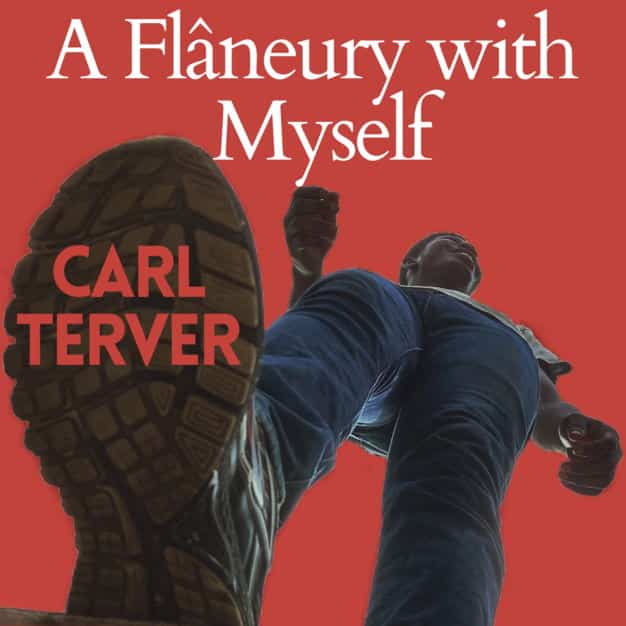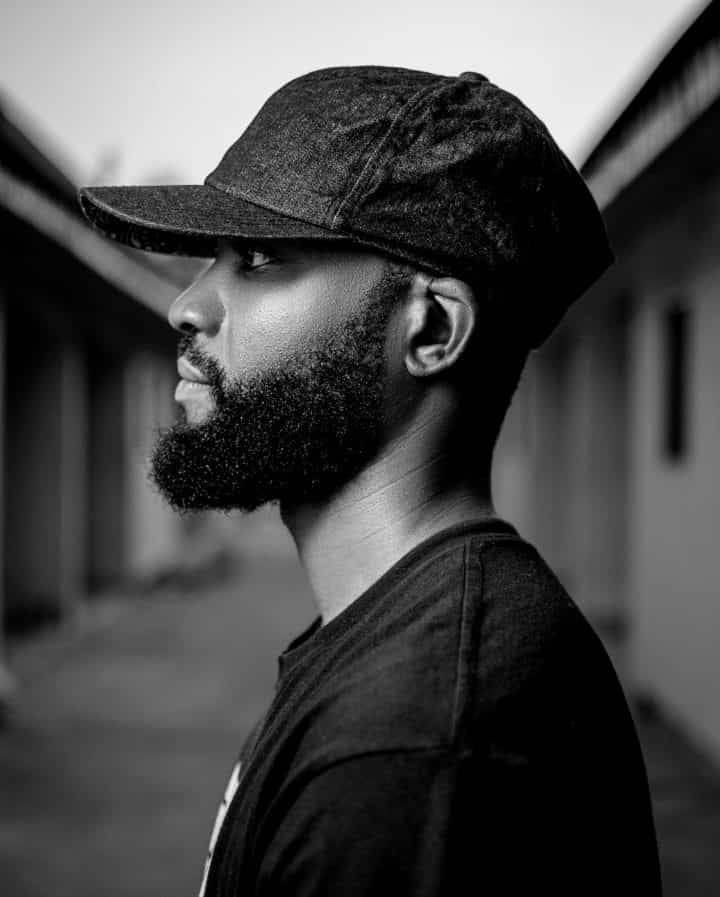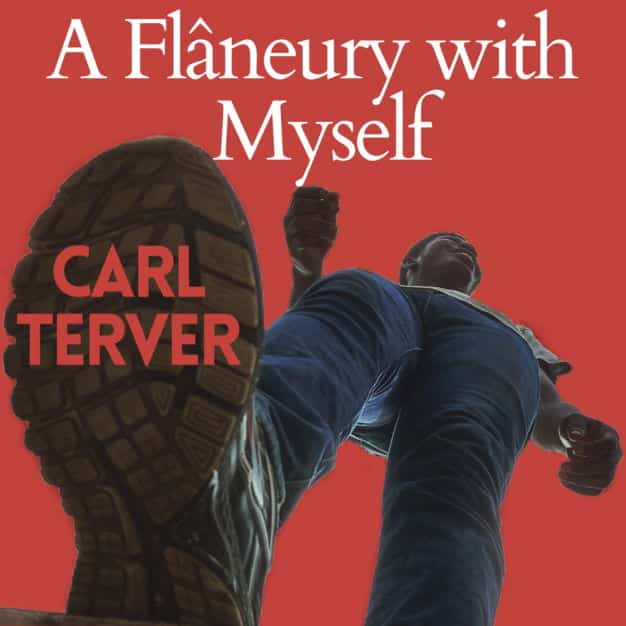
#1
Today is 1st May, 2020, a month since the government issued a lockdown in three states because of the pandemic. It is past 4:30AM, and I’m still in bed. A breeze reluctant to bring the rain has been a constant feature these last nights in Makurdi. Right now, it slaps my window, the fronds of the palm tree in the compound behind composing an orchestra of swooshing and swashing sounds, creating a familiarity of waves breaking on reefs. In my mind, I am Ralph or Peterkin in Ballantyne’s The Coral Island waiting for their lost friend, Jack. But I am alone in my room waiting for daylight to escape the claustrophobia of night in these pandemic times.
In the middle of April, I had a scare of coronavirus, so much, that even my body itching became a symptom to me. At the same time, I had an inflamed uvula—this was caused, I believe, by my religious intake of a cheap herbal vodka at the time. Its side effects are irritation and soreness in the throat. It worried me constantly: had I caught the virus? The home therapy for uvulitis is to gargle warm water mixed with salt, which I did. The soreness in my throat healed, but returned in a short time; healed and returned once more. A good example of the stubbornness of a virus-carrying microbe. Was it only my inflamed uvula? I asked myself. I’d saved three NCDC numbers on my phone. I knew it was a matter of time before I’d call, an event I dreaded, not trusting any medical attention I’d get in Makurdi.
In those few days, I gained clarity. I thought about unaccomplished things. Unwritten novels. Two-paragraph short story drafts. The seminal essay to write. Things to do. I counted my extinction and saw its completion nearing. But, finally, my throat’s soreness healed for good. I exhaled with gratitude to the Universe.
#2
It is not doomsday anymore in Makurdi as it was in the beginning when the President gave the address that initiated the lockdown. Shops that closed reopened. The atmosphere isn’t tense and we no longer talk about COVID-19 with dread; we make jokes since the virus is far from us. I am jaded, living in compulsory solitary confinement, helpless of what to do to cure monotony. In my compound there are just two of us tenants, the rest having fled. Although I am used to aloneness and solitude, the possibility of the quiet lasting longer frightens me, especially when evening comes and I am alone in the compound.
In Kim Stanley Robinson’s essay in the New Yorker, “The Coronavirus Is Rewriting Our Imaginations,” he suggests that the pandemic is an Anthropocene. It is easy to see his point: in his part of the world, people in great numbers have died from the virus, and the demands of fighting the pandemic have greatly tested civilisation. The earth somehow unleashed this virus on us, forcing us into new habits to allow it take a break from our ceaseless abuse of it.
I am not hassled by pressure, as economic activities slow down. My thinking is uncluttered by the distractions the old world bore. I am David Thoreau in Walden. I have cleared my table for a chapbook publication and book reviews I have procrastinated on. But I will love to see the world come back to life with all its troubles. I want to walk freely without the fear of a microbe waiting on a surface for me.
#3
In April, Praxis magazine published an essay anthology, Through the Eye of a Needle, where I found a picture of the enemy in Jason Mykl Snyman’s personal essay “What Kind of Animal.” The enemy is the coronavirus, but Snyman’s essay relates a rare picture of it. He breaks quarantine to go to a place he finds truest calm, where he sits and watches “the sundown peaks of the faraway mountains light up purple and orange between the trees.” But on this day, he finds a stranger, an old lady, sitting at his treasured spot.
The stranger becomes the manifested face of the enemy coronavirus, probably a host, Snyman fears; but the old lady thinks the same of him, too. They confront each other with stares. Snyman fears—“and if this is how it all ended” for him. “Was this how I would finally get myself beaten with a riot shield and arrested, here in my special place of truest calm . . . all because I broke quarantine?” he muses. But he escapes. The old lady leaves and he goes back home.
I understand this distrust for other people or to despise their presence in a time like this. Who is the enemy? Who is a host of the virus? Who won’t you give a handshake or hug? Snyman cannot be hypocritical—his reaction to the old lady who desecrates his treasured sitting spot exposes us at our most selfish. When he stared at her, he did more than laser her with his eyes. He had come face-to-face with an enemy. No, he came face-to-face with a theft of his humanity, to not go over to the old lady and say hi, seeing that she enjoys the same pleasures of nature as he, but to imagine her as an enemy, and to imagine his end, orchestrated by the mighty hand of a microbe.
#4
It has been four months since June. There is still no vaccine and we are all tired of staying indoors. There has been a Black Lives Matter protest all over Europe over George Floyd’s death, disregarding all COVID-19 prevention guides. I hunger to see what the world outside resembles, especially where to go for fun. But the fear of the microbe remains with me.
there is a lover
whose diamond ring is microbe
come to wed us all
I find courage at last. At the renovated District 4 Lounge where I take my courage to, the waitresses behave like freshly-baked bread, soft, light in carriage, all grace, about to sell a lie to somebody’s son. To my right, a chubby lady, with a weave-on fallen smoothly on the left and right side of her face, lounges in a sofa while her man, slightly older, strong-faced, drinks a Heineken. When they entered the Lounge, she was in a disagreeing conversation with him. She isn’t drinking now; probably refused to order.
The level of my Trophy stout lowers incrementally. I glance once at the entrance to the lounge and see two giddy, fair-skinned girls walk in. My gaze is intent, inspired by the molecules of ethanol in my bloodstream. But I don’t move from where I sit. This evening, I’m wedded to the bottle first. I hear the calisthenics of juvenile girls behind me, so uncontrollable, reminding me of prostitutes at the brothel in Pasali, Kuje, popularly known as Mango Tree. I thought that in my late 20s I’m wasting my life being at bars by 11:06PM. But then I see 35-plus men walk into the lounge with 20-year-old girls. Life!
#5
We are no longer in lockdown, months away from the fright of mass deaths. On the third day of October, the dissolved SARS throw out a young man from a moving vehicle in Ughelli—a Lexus Jeep they stole from him—to celebrate the country’s Independence. The young man is dead. The streets in Ughelli and Lagos and FCT pour with Nigerian youths in protest, demanding a final end and disbandment of SARS. The revolution finally: I tweeted with the #EndSARS hashtag, Facebooked the revolution, shared EndSARS video clips, and campaigned restlessly online. Soon, Aba joined the protest, as did Benin and Port Harcourt. Where were Makurdi youths?
Our time came. The day was October 17. We convened at the open space in front of JS Tarka Foundation, opposite IBB Square. I arrive wearing the cheap, white Kanin Original T-shirt, with a blue jean. I sport a baseball cap backward and tie a brown round neck over my shoulders to identify as a rebel. I meet George Vinci, friend from Facebook, and Biachi Ndidi Anointing. There is a big truck with some people in it. A deejay kit is set up in it, powered by a generator in the same truck. This has been the sight in online clips from protest grounds. Someone in the background says the protest is staged because the organisers had been to Government House.
When I return home later, past 3:00PM, I try to understand what happened at the protest. Too much coordination, I think, tamed the political language some of us set out to speak. Makurdi social media influencers and celebrities held sway throughout, and they were too careful. A moment of true reflection came at the Police HQ where we sang the national anthem and invoked the spirit of Aluta. It was the only moment I felt political. Earlier, I wanted to leave the protest, but I saw the many young faces marching and singing passionately, and changed my mind.
The Nigerian youth is created in the image of Nigeria, so there were also those youths who came out to have fun or replicate photos of protests they saw in other places. In particular were young bloods who climbed a few elevated spots and landmarks waving large, yard-length Nigerian flags. More danceable songs were played; less conscious music, suggesting something carnival. In the end, a good crowd turned up. I wished we went to the bridge to hold down traffic for, at least, an hour. But an invisible hand of caution that began with the protest at IBB Square didn’t allow the planners march us to the Benue bridge or even Wurukum Roundabout, where the food basket landmark is.
What is important is that we stepped out of our houses and comfort, onto the streets, even if some people didn’t understand the logic of our struggle. We chanted when the time allowed; others danced. We came out as a united people to end SARS. Came out for the revolution. Indian drums pounded in my ears from the noise at the protest. I kept hearing the words E be like you don dey talk too much. Small talk you don dey talk who talk. Fem! in my head because Davido’s “Fem” was overplayed as we marched and protested. Later, a picture of me with an enraged face appears online. I feel like the person in the picture isn’t me when I see it—a known and strange feeling—unable to reconcile the calm me in my room to the enraged writer, full beard, out on the street protesting for a phantom country, for the first time in his life. It is all the defiance needed for the lethargy of disillusion.

Carl Terver
writes from Makurdi. He is the Founding Editor of Afapinen.

